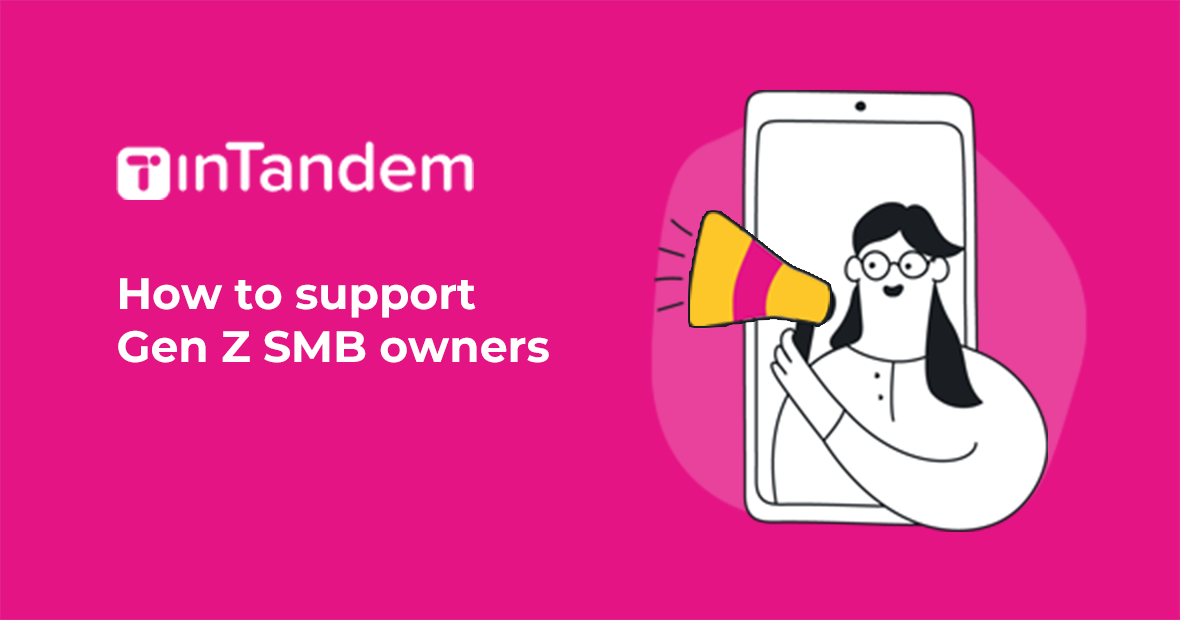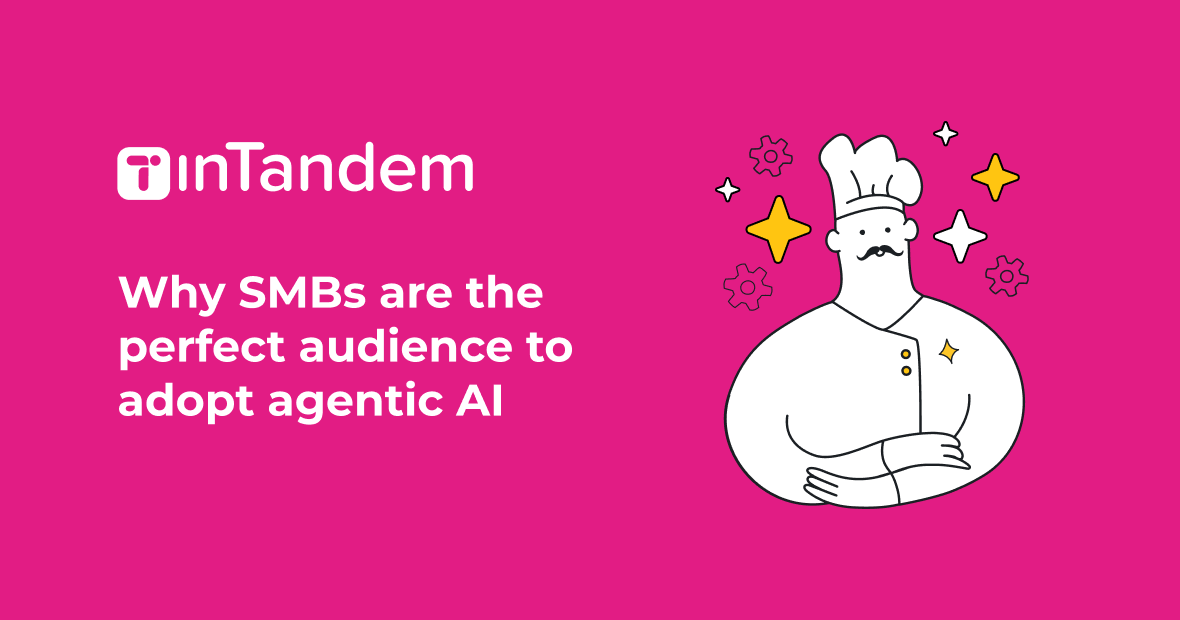The youngest generation entering the workforce, Gen Z are digital natives through and through, and their creativity, passion for justice, and digital know-how are changing what it means to be a small business owner.
Despite their age (the oldest Gen Z-ers are just 24), they’re serious about money and financial matters, disabused of the value of a formal degree, and thoroughly at ease with the concept of entrepreneurship and self-promotion. They want their business ambitions to be treated with respect.
This digital generation seeks out digital solutions for everything, which means they don’t just want digital business management and banking tools, they expect them. Even the way they go about acquiring their tech is fully digital, with TrustRadius research finding that Gen Z is 35% more likely than older generations to prefer fully self-service buyer’s journeys.
With their assumptions and attitude to small business entrepreneurship, Gen Z is changing the small business ecosystem, one click at a time.
Gen Z is the most entrepreneurial generation
Thanks to today’s free entry plans for business management tools, free marketing through social media interactions, and free online business advice, it’s never been easier to start your own business, and Gen Z has more entrepreneurial role models to follow than any previous generation.
Equally, it’s never been more challenging to enter the traditional workforce, thanks to a perfect storm of high student debt, devaluation of degrees, denigration of experts, and erosion of the “job for life” model.
What’s more, Gen Z is highly concerned to avoid debt and earn money. It’s the 59% of them say they are financially independent.
Admittedly, the percentage of small business ownership among Gen Z is relatively low, but that’s probably only because so many of them are still too young, given the youngest Gen Z-ers are just turning 12. But, all the signs of entrepreneurship are there. Some 62% say they plan to start their own business, many study entrepreneurship and business management as early as high school, and high school startup incubators are popping up all over the place.
But Gen Z’s approach to work is based on values more than money. It’s a generation driven by the love of simply creating, by passion and by the desire to build lifestyles and societies that are just.
Gen Z small businesses break the mold
Gen Z small businesses skew towards content creation and digital-only businesses, rather than more traditional SMB verticals like skilled freelancing as designers or writers, or selling services like yoga or beauty care.
Most of the top content creators on Instagram, TikTok and YouTube are Gen Z, partly because they love to create, but also partly because so many came of age into a pandemic that closed in-person stores and elevated digital content.
This is the first truly digital generation, who never knew life without social media and smartphones. Branding, self-promotion, and social selling is in their blood, and the entire world is their playground. If Gen X-ers sold lemonade to their neighbors at roadside stands, then Gen Z-ers sell customized lemonade-making lessons and kits to global audiences from the palms of their hands.
Both their age and their attitude combine to make them fearless to experiment with small businesses.
From their vantage point, it’s easy to set up a business, see how things go, and then try something else if it doesn’t work out. As the DIY generation, preferring to learn from video streams instead of in classrooms, they’re willing to jump in where older generations fear to tread.
The digital generation expects advanced digital tools
Gen Z cut their teeth on digital, and “there’s an app for that” is their solution to every issue in consumer life, so it’s hardly surprising to see that carry over into their business life. With 99% of Gen Z using a mobile banking app for a range of tasks, not only do they welcome digital banking – they see it as table stakes.
The typical Gen Z business path is digital from start to finish. They might begin by experimenting with videos on YouTube and TikTok or “maker projects” on Instagram or Roblox, and then start filling orders for family and friends. They expand to free e-commerce plans on platforms like Etsy and Shopify; use tools like Stripe or Square for online payment processing; and they market their growing business on social media, graduating to paid tiers on SaaS tools.
While most financial institutions realize Gen Z’s digital nature, not all of them are aware that a digital portal isn’t enough. Gen Z demands are more advanced than that; for example, they’re the only generation to place integration with other payment apps near the top of the list when choosing digital tools. As a generation accustomed to free tools that let them experiment and grow, they’re also unwilling to pay for banking services.
However, despite their financial nous, most Gen Z entrepreneurs won’t pass traditional credit scoring tests for business loans, because they’re too young and lack credit history. They need new approaches to loan decisions and business funding, so incubators and VC funds for young innovators are filling the need.
Gen Z is used to having information and news at their fingertips. They appreciate making fully informed decisions, so they look for self-serve content that can teach them the skills and information they need to move forwards. Once again, the digital generation isn’t restricted by channel or source, so if banks and financial institutions don’t deliver, they’ll take the information they need from TikTok or YouTube.
Not all about the money
Gen Z business owners want a relationship with financial providers, not just disconnected transactions, but they are happy to have that relationship over digital channels. However, they still like knowing they have the option of face to face meetings if they choose.
Neobanks and new fintech platforms are innovating with banking through chatbots or Messenger, which matches both Gen Z’s need for connection and their expectations of always-on service.
Their demands for a relationship go along with a reluctance to trust, so Gen Z needs transparency, as well as personalized content and interactions. They appreciate clear, non-patronizing, actionable guidance about business tools, funding options, and business strategy, and financial providers are increasingly recognizing their role as a source of education and information, not just loans and banking products.
However, Gen Z-ers don’t leave their values at the door when choosing banking partners. They want financial institutions that share their worldviews and act as a force for the good.
Ushering in a new approach to small business
Gen Z is reshaping the way small businesses and financial providers interact. They look not just for funding and digital tools, but for information and transparency. Financial institutions that offer advanced and integrated digital platforms, DIY content, and personal, round-the-clock communication are the ones winning Gen Z business customers.
Dismiss them for their age at your peril, because they might just be the most financially powerful generation yet.


























